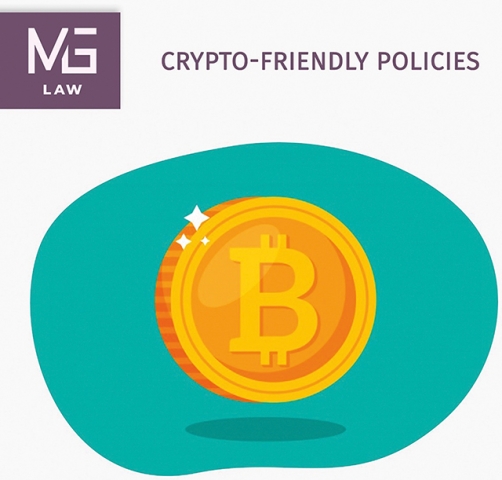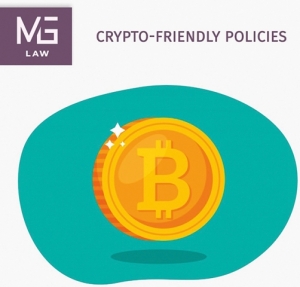Switzerland Enshrines its Crypto-friendly Policies into Law
MG Law Office, through the contribution of partners Archil Giorgadze and Nicola Mariani, joined by senior associates Ana Kochiashvili, Tamar Jikia, associate Mariam Kalandadze, junior associates Ana Jikia and Lasha Machavariani is partnering with Georgia Today on a regular section of the paper which will provide updated information regarding significant legal changes and developments in Georgia. In particular, we will highlight significant issues which may impact businesses operating in Georgia.
Switzerland has been leading the efforts in the global adoption of tokenized digital assets and has recently amended its Code of Obligations to welcome crypto currencies and blockchain technology into mainstream adoption. While Switzerland is not the first country to enact extensive blockchain legislation, it became one of the first major financial centers, with a full set of laws (the Laws) to govern blockchain transactions.
The Federal Council of Switzerland introduced a new package of amendments to the Swiss Code of Obligations that aims to create a new category of transferable securities. Pursuant to new legislation, companies have the possibility to create digital shares and other assets that can be listed and traded on blockchain. The Laws cover the exchange of digital securities using distributed ledger technology (DLT), set standards for crypto currency exchanges, and address money laundering issues. The Laws further regulate the segregation of crypto-based assets in case of bankruptcy and create a new licence type for DLT trading facilities.
Urs Bolt, one of Switzerland’s top FinTech influencers, and product manager for digital banking at leading digitization specialist ti&m, states that “Overall, it will create one of the most favorable regulatory environments in the world. It will allow the financial center to lead in the digital asset space and hopefully attract new business into CryptoValley". Fiorenzo Manganiello, Blockchain expert in Switzerland, applauds the country’s efforts to bring more clarity and certainty to its regulatory framework. He believes these changes will greatly benefit the finance market and its participants, and will facilitate the development of digital currency exchanges.
New opportunities that the laws create
The new regulations allow for the registration of DLT securities in a DLT electronic register at the time of their issuance and establish a procedure for registration. The registration procedure has to be transparent and meet certain requirements of data integrity and IT systems. With this opportunity, it will be possible to transfer rights and evidence the legitimacy of the holder of a right, like the other forms of securities.
DLT securities will be traded, and offers related to such securities will be exchanged through DLT-based trading facilities. According to the Laws, there is a new type of licence for the establishment and operation of the DLT trading facility, the requirements of which are similar to those applicable to the licence for the establishment and operation of the stock exchange. Through DLT trading facilities, it will be possible to carry out multilateral trading of DLT securities, exchange bids and conclude contracts based on non-discretionary rules.
The Laws also separate crypto-based assets from third-party custodians in case of bankruptcy proceedings are launched against them.
Since distributed ledger technologies are growing rapidly, the market needs and interests towards them are increasing consistently. Swiss laws now address the market needs and provide a clear legal framework for DLT based facilities and securities, which makes it possible to increase the use of blockchain technology in trading.
The first major financial center to enact crypto legislation
Neighboring Liechtenstein has already enacted extensive blockchain legislation, but it chose to create new laws rather than amend its current laws. Liechtenstein passed its “Blockchain Act”, which came into effect in January 2020. The Swiss government had to move quickly to pass its own “Blockchain Act” in order to maintain its leading position as one of the most crypto-friendly nations in the world. The business issues digital assets through its Swiss banking-grade platform and has regulatory approval in Liechtenstein and Switzerland.
Unlike Liechtenstein, Switzerland had no need to create a new law, given its regulatory flexibility, so existing laws had only to be amended and will likely be amended again, as the sector develops.
First country to attempt to regulate crypto currency banking
Crypto banks, which aim to serve asset managers, regular banks and start-ups, will now be regulated, just like any other financial institutions. In August 2019, the Swiss independent financial markets regulator, FINMA (FINMA), granted Switzerland’s two new crypto asset banks, Seba and Sygnum, provisional banking and securities licenses. They are the first such licenses granted anywhere in the world, and will enable the banks to integrate cryptocurrency into a wide range of services such as deposits, withdrawals, lending and investing.
The laws will consolidate Switzerland’s current blockchain growth
Switzerland currently houses about 900 blockchain companies with an estimated total staff of about 4,700. These figures are expected to rise when the new bill comes into full effect.
The Laws are expected to stir the Swiss banking sector into seeing the technology and its associated innovations in a new light. The Laws are expected to come into force early 2021.
* * *
Note: this article does not constitute legal advice. You are responsible for consulting with your own professional legal advisors concerning specific circumstances for your business.
MG Law is the first full-service law firm in Georgia to be founded by international partners. The firm advises a diverse group of Georgian and foreign companies, financial institutions, investment funds, governments and public enterprises.
Among many other areas, the firm primarily focus on the following sectors: Banking & Finance, Capital Markets, Arbitration & Litigation, Labor & Employment, Infrastructure and Project Finance, Energy Law, Real Estate, Tax and Customs, Investment Law, Corporate Law, and Cryptocurrency & Blockchain.
For more information, please visit www.mglaw.ge or contact Archil Giorgadze at archil.giorgadze@mglaw.ge and Nicola Mariani at Nicola.mariani@mglaw.ge











